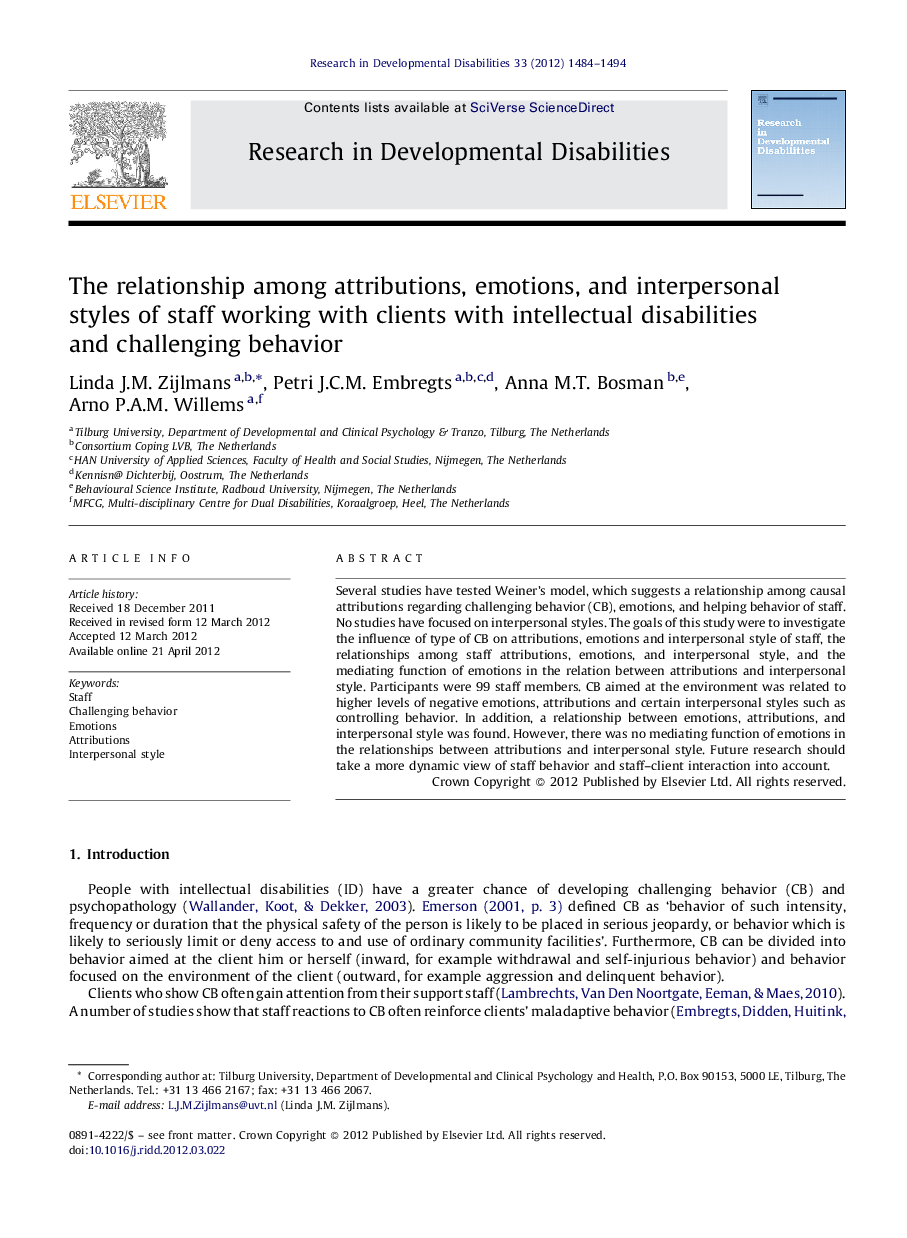| Article ID | Journal | Published Year | Pages | File Type |
|---|---|---|---|---|
| 371969 | Research in Developmental Disabilities | 2012 | 11 Pages |
Several studies have tested Weiner's model, which suggests a relationship among causal attributions regarding challenging behavior (CB), emotions, and helping behavior of staff. No studies have focused on interpersonal styles. The goals of this study were to investigate the influence of type of CB on attributions, emotions and interpersonal style of staff, the relationships among staff attributions, emotions, and interpersonal style, and the mediating function of emotions in the relation between attributions and interpersonal style. Participants were 99 staff members. CB aimed at the environment was related to higher levels of negative emotions, attributions and certain interpersonal styles such as controlling behavior. In addition, a relationship between emotions, attributions, and interpersonal style was found. However, there was no mediating function of emotions in the relationships between attributions and interpersonal style. Future research should take a more dynamic view of staff behavior and staff–client interaction into account.
► The relationship among attributions, emotions, and interpersonal style of staff working with clients with challenging behavior is investigated. ► Attributions and emotions influence interpersonal style of staff. ► Emotions do not have a mediating function in the relation between attributions and interpersonal style. ► Type of challenging behavior affects the staff variables. ► Future research should focus on real staff behavior and a more broad, dynamic, and systemic view of staff behavior.
